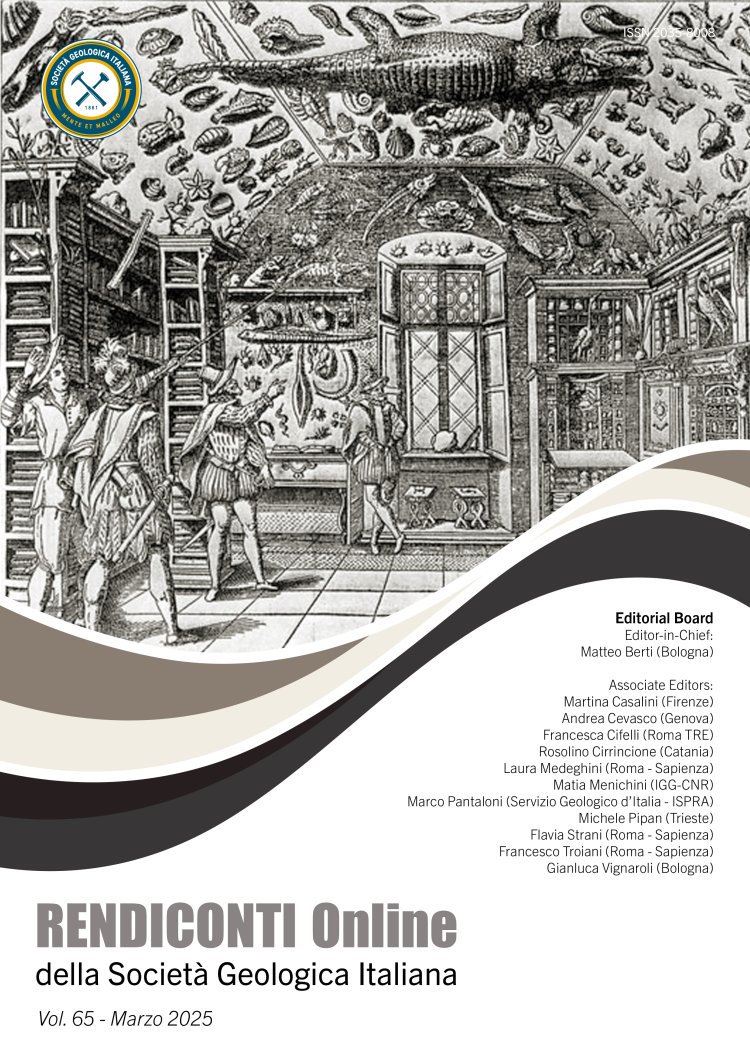
Palaeontology in the Italian seventeenth-century naturalist Paolo Silvio Boccone
Marco Romano1
1Dipartimento di Scienze della Terra, Sapienza Università di Roma, Piazzale Aldo Moro, 5, Roma, Italy.
Corresponding author e-mail: marco.romano@uniroma1.it
Volume: 65/2025
Pages: 66-86
Abstract
This paper examines the palaeontological contributions of 17th-century Italian botanist Paolo Silvio Boccone, a multifaceted naturalist whose work spanned botany, palaeontology, and geology. Boccone played a crucial role in the early development of Earth Sciences and the debate on the origin of fossils. He was among the first to advocate for the organic origin of fossils, rejecting views that
saw them as inorganic formations. Through detailed field observations and comparisons with modern organisms, he accurately identified fossils such as shark teeth, echinoderms, and molluscs as lithified remains of once-living beings.
Notably, Boccone supported the organic interpretation of “Glossopetrae” (shark teeth), countering his time’s mythical and inorganic theories. He also advanced the understanding of taphonomic processes, describing how fine sediments preserved imprints of organic structures and rejecting the notion of a “petrifying juice” in favour of sedimentary infilling mechanisms. However, Boccone occasionally
treated certain fossils ambiguously, such as “Belemnites” and “Fossil Unicorns”, exploring alternative perspectives, including their medicinal uses. Acting as a mediator of ideas from key figures like Steno and Scilla, Boccone contributed significantly to disseminating foundational palaeontological concepts. His work marks a critical transitional phase toward modern palaeontology, emphasising
empirical observation and actualistic approaches.
Keywords
history of palaeontology, Nicholas Steno, Agostino Scilla, Ferrante Imperato, Fabio Colonna, fossil shark teeth.
Get Full Text